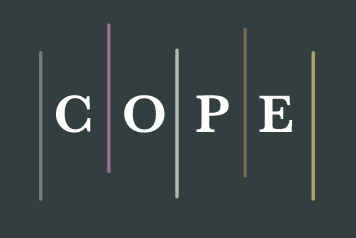The Concept of Gus Dur's Humanism in Nusantara Islam
DOI:
https://doi.org/10.58355/maqolat.v2i1.50Keywords:
Humanism, Gus Dur, Nusantara IslamAbstract
Gus Dur's concept of the indigenization of Islam is related to what is called Islam Nusantara, namely the embodiment of Islam through local traditions and culture of the archipelago. Thus rejecting local forms of Islam which are actually manifestations of Islamic universalism. That is, actually locality is colored by Islam, not vice versa, Islam is colored by locality. So that at this point, the indigenization of Islam found its urgency as a method in forming the Islam of the Archipelago. The formulation of the problem of this research is; What is Gus Dur's concept of humanism in Islam Nusantara and what are Gus Dur's contributions to Islam Nusantara. This study uses library research (library research), which is a collection of data or materials related to the theme of discussion and problems, which are taken from library sources and this type of research uses qualitative methods. The results of this study indicate that the relevance of Gusdur's concept of humanism to the Islam of the archipelago is as follows: First, according to Gus Dur his views on Islam are undergoing major changes. Second, according to Gus Dur, religion must be able to change people's morality by being patient and nurturing each other so that it conforms to Islamic teachings which are believed to be true by providing a good example as the main vehicle in the formation of morality that applies in the midst of a very high pluralistic society. Gus Dur also emphasized the value of monotheism in the concept of maqashid al-shari'ah which is embodied in the concept of kulliyatul khams, namely the aim of sharia to protect basic human rights.
Downloads
References
Ahmed S, Akbar. Zulfahmi Andre. Membedah Islam. Bandung: PUSTAKA, 1990.
Arif, Syaiful. Humanisme Gus Dur. Yogyakarta, 2016.
Dumyati. (2023). Problems of Vision and Mission and the Dichotomy of Knowledge in Islamic Education. Maklumat: Journal of Da’wah and Islamic Studies, 1(1), 31–40. https://doi.org/10.61166/maklumat.v1i1.4
Fauzul Azmi, & Siti Ardianti. (2023). Kisah Keteladanan KH. Hasyim Asy’ari. LECTURES: Journal of Islamic and Education Studies, 2(2), 111–117. https://doi.org/10.58355/lectures.v2i2.32
HAKIM, S. (2020) “DISTORSI HUMANISME DALAM KONSEP ISLAM RAHMATAN LIL’AALAMIIN DI INDONESIA (Studi Internalisasi Humanisme dalam Islam)”, al-Afkar, Journal For Islamic Studies, 3(1), pp. 1–19. doi: 10.31943/afkar_journal.v3i1, January.74.
Hadiwiyono, Harun. Sari Sejarah Filsafat 2. Yogyakarta: Kanisius, 1995.
Kementerian Agama RI.”Al-Quran dan Terjemahannya”. Solo; PT Tiga Serangkai Pustaka Mandiri, 2018.
Lasmiadi, Maya Febriani Chandra, & Alhairi. (2023). Implementation Model of Character Education Values in the Islamic Boarding School System. ATTAQWA: Jurnal Pendidikan Islam Dan Anak Usia Dini, 2(4), 171–178. https://doi.org/10.58355/attaqwa.v2i4.62
Nasir Hassan Wani. (2023). The City-State Of Madina: Administrative And Constitutional Policies Of Prophet Mohammad [PBUH]. Al-Arfa: Journal of Sharia, Islamic Economics and Law, 1(2), 56–66. https://doi.org/10.61166/arfa.v1i2.35
Qomar, M. ISLAM NUSANTARA: Sebuah Alternatif Model Pemikiran, Pemahaman, dan Pengamalan Islam. El Harakah, 2015.
Triono, Warko. PRIBUMISASI ISLAM (Studi Analisi Pemikiran Gus Dur). UIN Palembang, 2015.
Wahyu Nurhayati, D. A., & Oktavia, N. T. (2023). Sejarah Perjuangan Gus Miek dalam Menggagas Dzikrul Ghofilin. HISTORICAL: Journal of History and Social Sciences, 2(2), 58–63. https://doi.org/10.58355/historical.v2i2.45
Wahid, Abdurrahman. Prisma Pemikiran Gus Dur. Yogyakarta, LKiS, 2010.
Wahid, Abdurrohman. “Aspek Reformatif dari Upaya Agama untuk Menanggulangi Masalah Kemiskinan”, dalam Muslim di Tengah Pergaulan. Jakarta: Leppenas, 1981.
Downloads
Published
How to Cite
Issue
Section
License
Copyright (c) 2024 M. Aris Munandar, Encung Heriyadi

This work is licensed under a Creative Commons Attribution 4.0 International License.






















